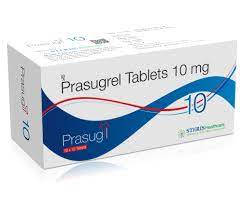Pravachol: Your Guide to Cholesterol Management
Welcome to our comprehensive guide on Pravachol, a potent medication in the fight against high cholesterol and heart disease. If you’re eager to learn about Pravachol’s benefits, uses, and impact on heart health, you’re in the right place. In this article, we’ll delve into the world of Pravachol, illuminating its mechanism of action, FDA-approved indications, and how it can be a pivotal tool in managing your cardiovascular well-being.
What is Pravachol?
Pravachol, also known by its generic name pravastatin, is a notable statin medication that plays a vital role in cholesterol management. It belongs to a class of drugs renowned for their ability to lower LDL cholesterol levels effectively. In this section, we’ll unravel the intricacies of Pravachol, shedding light on how it achieves this crucial task.
Approved Uses
Pravachol boasts a range of FDA-approved indications, solidifying its position as a front-runner in cholesterol control. Its primary mission is to reduce elevated levels of LDL cholesterol, often referred to as “bad” cholesterol. By understanding its approved uses, you’ll gain insight into when and how Pravachol can be a game-changer in your heart health journey.
Pravachol vs. Other Statins
Pravachol, often compared to fellow statin medications like Lipitor and Crestor, holds unique advantages in the realm of cholesterol management. In this section, we’ll explore how Pravachol stacks up against its counterparts, discussing the nuances of its effectiveness, safety profile, and suitability for different individuals.
Dosage and Administration
Optimal results with Pravachol depend on precise dosage and proper administration. Our comprehensive guidelines will walk you through this critical aspect, covering prescribed dosages, the best time to take Pravachol, and essential administration practices. Navigating this information ensures that you harness the full potential of Pravachol for cholesterol control.
Common Side Effects
As with any medication, Pravachol can bring about side effects. In this section, we’ll delve into the common side effects that may accompany Pravachol use, such as muscle pain or liver enzyme elevation. Understanding these potential effects empowers you to recognize, manage, and address any concerns with your healthcare provider.
Safety Precautions
Ensuring your safety while using Pravachol is paramount. In this section, we provide comprehensive advice on safety precautions. Topics covered include regular medical check-ups, the importance of adhering to your healthcare provider’s instructions, and vigilance in monitoring your health. By following these guidelines, you can confidently incorporate Pravachol into your healthcare regimen.

Pravachol and Heart Health
Delve into the profound impact of Pravachol on heart health. Learn how this medication, by reducing LDL cholesterol levels and improving lipid profiles, contributes to a healthier heart and a decreased risk of cardiovascular events. Our insights will help you appreciate the significance of Pravachol in your overall well-being.
Patient Experiences and Testimonials
Real-life stories carry unique weight. In this section, you’ll find genuine patient experiences and testimonials related to Pravachol. These firsthand accounts offer a personal perspective on the medication’s effects, side effects, and the impact it has had on individuals’ lives. Reading these accounts can provide valuable insights and relatable experiences.
Future Developments
Stay ahead of the curve by exploring ongoing research and potential future developments related to Pravachol and heart health. We’ll delve into emerging trends, innovations in cholesterol management, and areas where Pravachol may continue to shine as a vital tool in cardiovascular care.
FAQ About prasugrel
Q: What is Pravachol, and how does it work?
A: Pravachol is a statin medication that lowers LDL cholesterol levels in the blood. It works by inhibiting an enzyme in the liver involved in cholesterol production.
Q: Why is Pravachol prescribed by doctors?
A: Pravachol is typically prescribed to individuals with high cholesterol levels to reduce their risk of heart disease and stroke.
Q: Are there different brand names for Pravachol?
A: Yes, Pravachol is also known by its generic name, pravastatin. It may be available under different brand names.
Q: What are the common side effects of Pravachol?
A: Common side effects may include muscle pain, gastrointestinal issues, and liver enzyme elevation. However, not everyone experiences these side effects.
Q: How should I take Pravachol for the best results?
A: Pravachol is usually taken once daily, with or without food. It’s essential to follow your doctor’s instructions regarding dosage and timing.
Q: Can Pravachol be taken with other medications?
A: Pravachol can interact with some medications, so it’s crucial to inform your healthcare provider about all the drugs you are taking.
Q: Are there specific precautions I should follow while using Pravachol?
A: Yes, precautions include regular check-ups, avoiding excessive alcohol consumption, and discussing potential interactions with your doctor.
Q: Is Pravachol safe for long-term use?
A: Pravachol can be used for long-term cholesterol management, but your healthcare provider will monitor your progress and adjust treatment as needed.
Q: Can I stop taking Pravachol if I experience side effects?
A: It’s essential to consult your doctor before discontinuing Pravachol. They can help address side effects and determine the best course of action.
Q: What should I do if I miss a dose of Pravachol?
A: If you miss a dose, take it as soon as you remember. However, if it’s close to your next dose, skip the missed one and continue with your regular schedule.
Conclusion
In conclusion, our guide has illuminated the essential aspects of Pravachol, from its mechanism of action to FDA-approved indications, dosage guidelines, and its impact on heart health. Armed with this knowledge, you can engage in informed discussions with your healthcare provider, make proactive decisions about cholesterol management, and prioritize your cardiovascular health.




